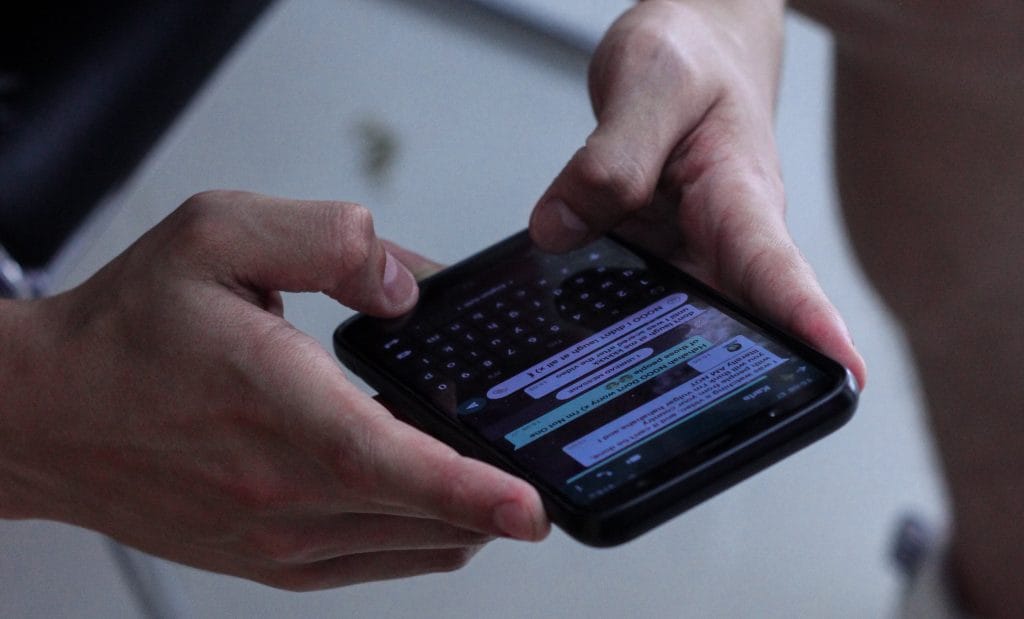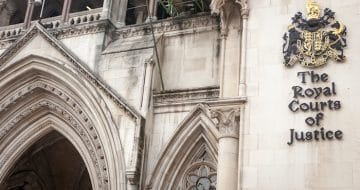WhatsApp fail

A partner at a City white-collar crime firm has apologised to the Court of Appeal after breaching the embargo on a draft judgment by posting in the group chat.
Keith Oliver, 65, admitted circulating the result on WhatsApp, both to fellow partners at Peters & Peters and accidentally to dozens of other lawyers in a different group.
But the court accepted that there was no connection between the breach and media reports about the still-embargoed case, saying there must have been another leak.
The underlying case is about allegations of massive corruption against Fahad Maziad Rajaan Al Rajaan, the former head of Kuwait’s state pension scheme. The Public Institution for Social Security alleges that Mr Al Rajaan took bribes for 20 years in return for steering investments from the megafund in certain directions, earning almost $850 million (£625 million) in the process.
On 26 January, the Court of Appeal handed down a judgment confirming that various Swiss lawyers and bankers can’t be sued in London for their alleged part in the bribery and money-laundering involved. The press in Kuwait — where the case is understandably big news — leapt to report the outcome of the judgment, with stories circulating on Twitter from 7.30am UK time.
The problem was that the judgment wasn’t actually released until 10.30am.
In the ensuing search for culprits, Oliver — head of international at Peters & Peters, which was acting for one of the many Swiss defendants — revealed that he had a confession to make.
Oliver had read the draft, embargoed judgment on 18 January and sent a WhatsApp message to what he thought was a select circle of five other Peters & Peters partners: “In other news we just won in the CA on the Pictet case. Huge jurisdictional victory…”
But in the words of the Court of Appeal:
… in fact Mr Oliver did not send a message to his fellow partners as he had intended. Instead, by error, he sent the message to a quite different group of 41 international lawyers in a group sharing interests and created for social reasons.
A colleague in the group chat quickly realised the mistake and helped Oliver to delete the message within minutes. He then sent it to the partner chat as intended.
Oliver told the court that he had checked with all members of both groups about onward dissemination. All the partners said they hadn’t told anyone else, while all the second group said they hadn’t even seen it before deletion. He nevertheless “offered his unreserved apologies to the court and expressed deep regret for the situation that had arisen”.
Al-Rajaan’s solicitors reckoned that “there was no evidence of a link between Mr Oliver’s breach and publication in Kuwait via Kuwaiti/Arabic sources and media. Thus, there must have been further breach”, unrelated to the WhatsApp imbroglio.
Lady Justice Carr accordingly concluded that there was no connection between Oliver’s messages and the Kuwaiti media reports. The veteran escaped with a mild chiding:
“Mr Oliver committed a breach of the Embargo in communicating the result of the appeal to fellow partners uninvolved in the conduct of the litigation… That communication was undoubtedly a breach of the Embargo. Communication with such partners did not fall within the narrow purposes for which the draft judgment had been released. These breaches should have been self-reported at the time.”
Last month, Master of the Rolls Sir Geoffrey Vos warned that “in future, those who break embargoes can expect to find themselves the subject of contempt proceedings”.
But Carr noted that the events of this embargo breach came before that dire warning, making it “unnecessary for any further steps — apart from publication of this judgment — to be taken” against Oliver.
The other leaker or leakers can rest easy: Carr also said that it wouldn’t be “appropriate for the court itself to instigate what would be complex, expensive and probably ultimately fruitless enquiries into precisely who committed the breach(es), when and how”.
For the latest news, commercial awareness insight, careers advice and events:
Sign up to the Legal Cheek Newsletter

